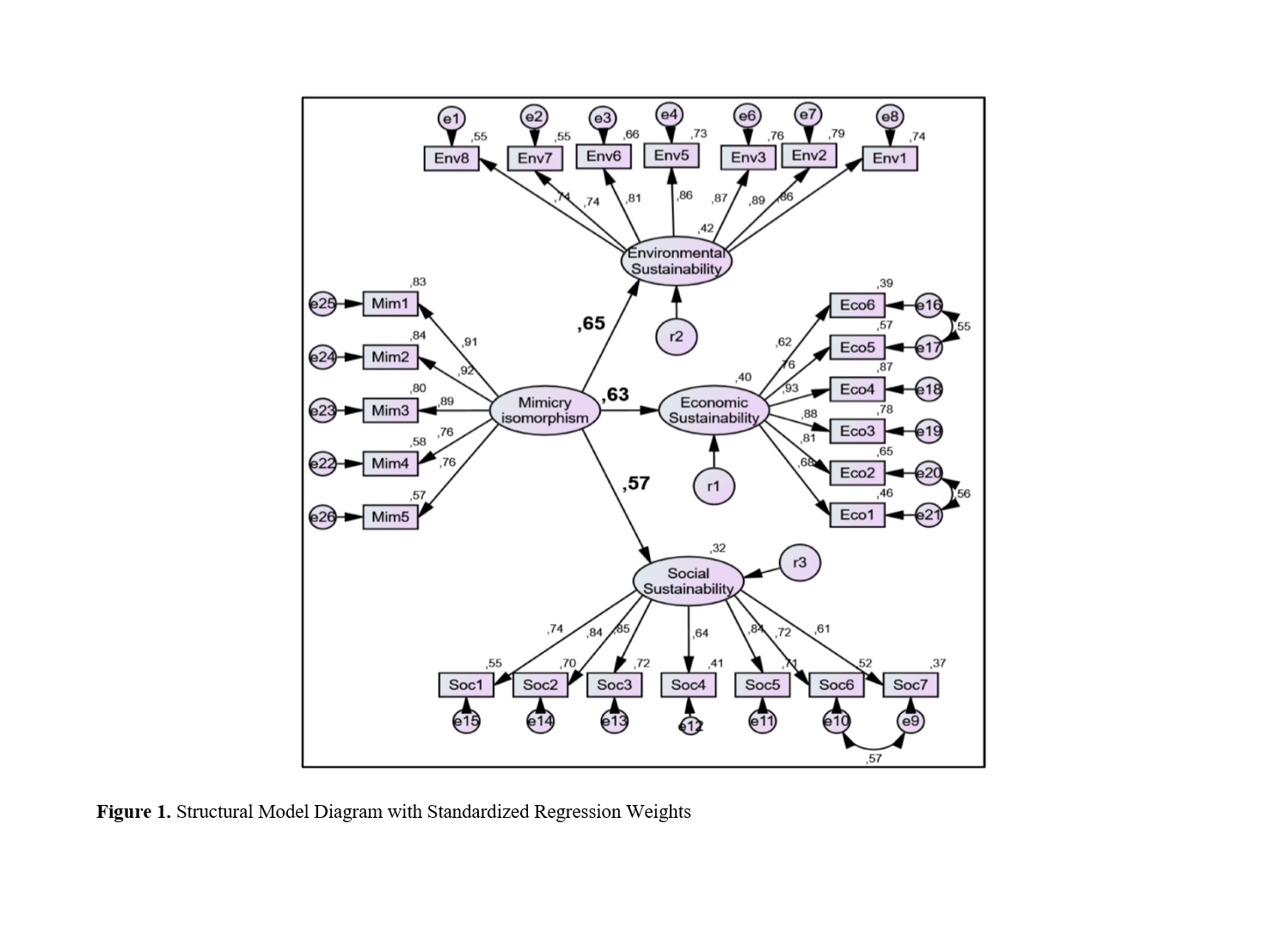Investigating the Effect of Mimetic Isomorphism in Implementing Sustainable Development
Keywords:
Mimetic isomorphism, sustainable development, small and medium enterprises, environmental reporting, social reporting, corporate governance reportingAbstract
If companies seek survival and the achievement of their objectives, they must adapt to their normative environments. This study suggests that in the context of isomorphism, when companies interact, they tend to influence each other’s behaviors and actions within their social bounds. In this regard, companies initially joined sustainable development as a response to external pressures and criticisms from governmental institutions and civil society organizations, which blame businesses for environmental degradation. The process of isomorphism explains why companies eventually change in line with uncertainties in behaviors and actions due to collective entanglement. In response to social changes in society, social networks consistently play a prominent role in defining, forecasting, responding to, and adapting to global, social, and environmental changes. Therefore, sustainable development is an example of such a global change. Consequently, this research examines the effect of mimetic isomorphism in the implementation of sustainable development, and the results of structural equation modeling indicate that all three measured dimensions of sustainable development—environmental, social, and corporate governance—are significantly influenced by mimetic isomorphism. Additionally, the findings of these studies suggest strong evidence of the operationalization of sustainable development due to mimetic isomorphism.












